Toolkit
Feb 01 2024
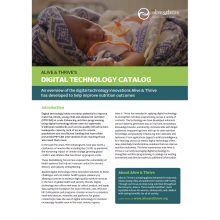
Alive & Thrive Digital Technology Catalog: An overview of the digital technology innovations Alive & Thrive has developed to help improve nutrition outcomes
Guide/Manual
Sep 25 2023
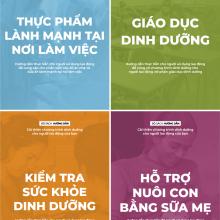
Workforce Nutrition Guidebooks in Vietnamese
Workforce nutrition programs are a set of interventions advocated by the Workforce Nutrition Alliance, designed to work through the existing structures of the workplace to address fundamental aspects of nutrition amongst employees or supply chain workers.
Job aid
Aug 17 2023
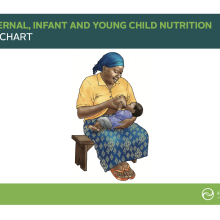
Alive & Thrive Nigeria MIYCN Flip Chart
This flip chart is intended for use as a job aid by health workers to advise pregnant and breastfeeding mothers on best practices in maternal nutrition, breastfeeding, and complementary feeding.
Guide/Manual
Aug 16 2023
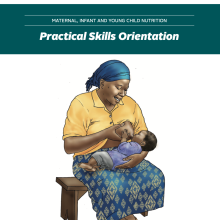
Alive & Thrive Nigeria MIYCN Practical Skills Training Manual
This manual can be used as part of an in-service orientation/training for newly employed or deployed health professionals working in MIYCN. It can also be used to train existing primary healthcare (PHC) workers on essential MIYCN services that can be integrated into PHC services.
Handout
Aug 16 2023
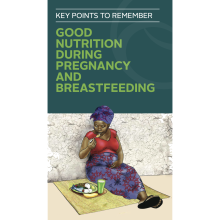
Alive & Thrive Nigeria Maternal Nutrition Brochure
This brochure identifies best practices in nutrition and hygiene for pregnant and breastfeeding Nigerian mothers.
Journal article
May 17 2023

Attitudes, beliefs and social norms regarding infant and young child feeding among Nigerian mothers, fathers and grandmothers across time (Schnefke C, Flax V, et al. Maternal & Child Nutrition. 2023)
Focus group discussions with mothers, fathers and grandmothers of young children across three time points in areas where an IYCF social and behaviour change intervention was implemented in Nigeria explored differences by participant type and shifts over time in attitudes, beliefs and social norms

